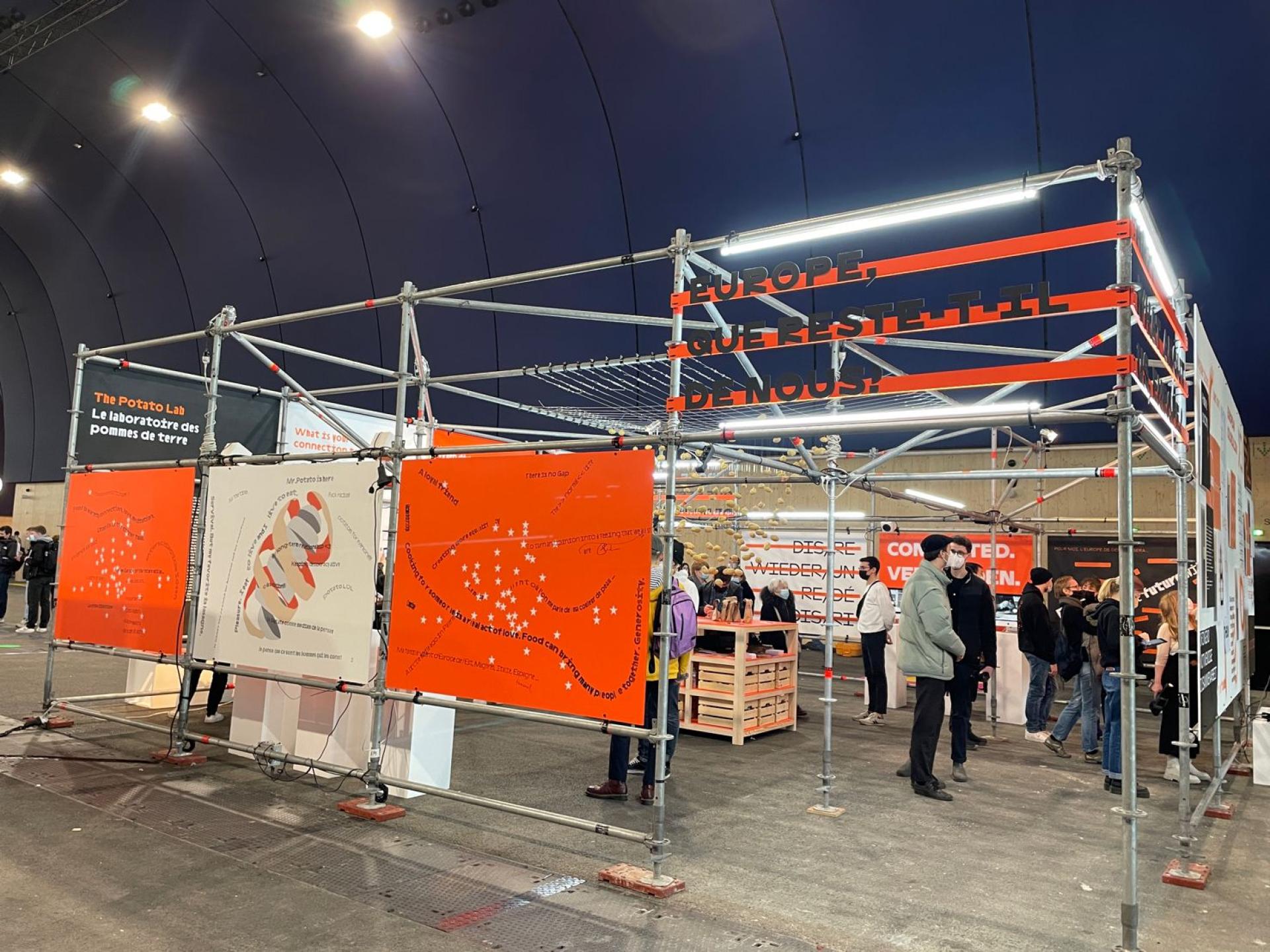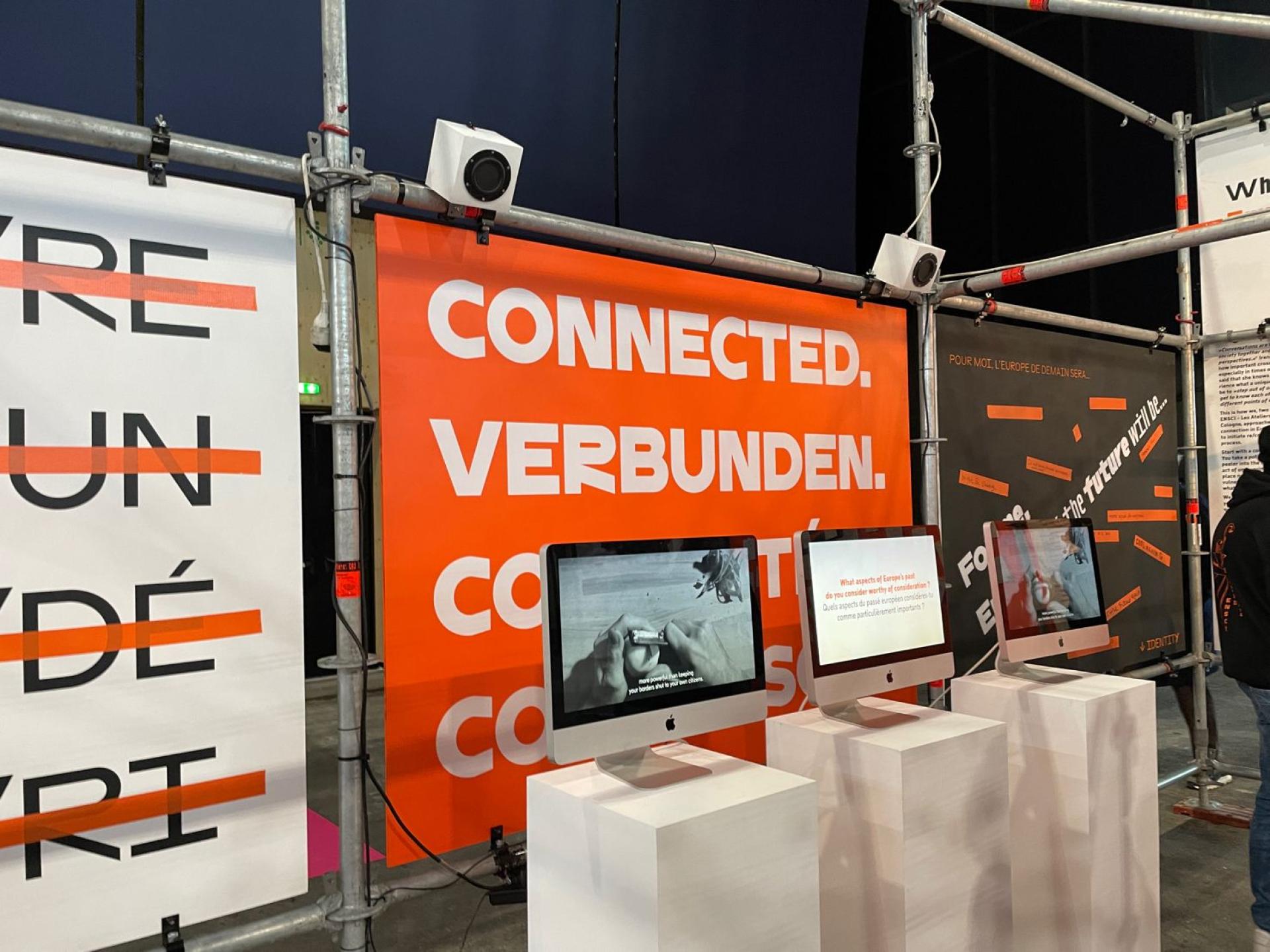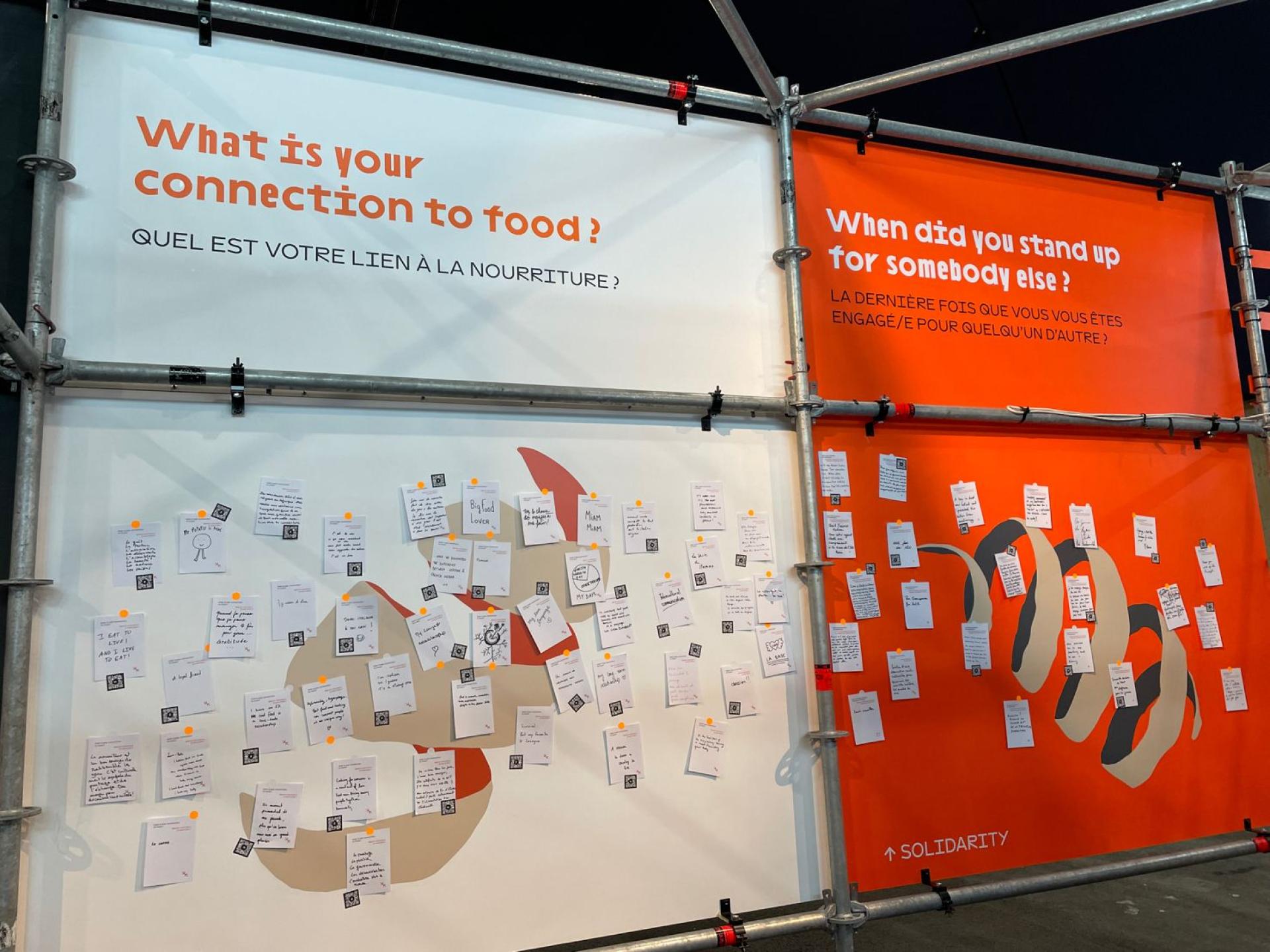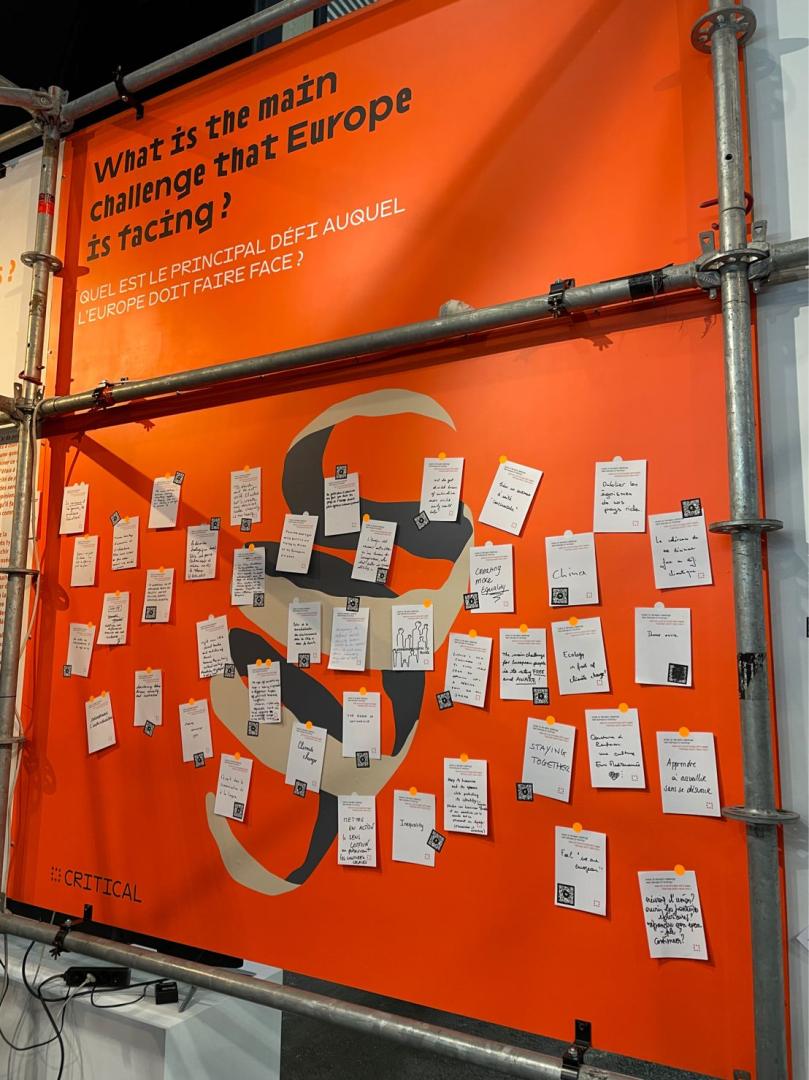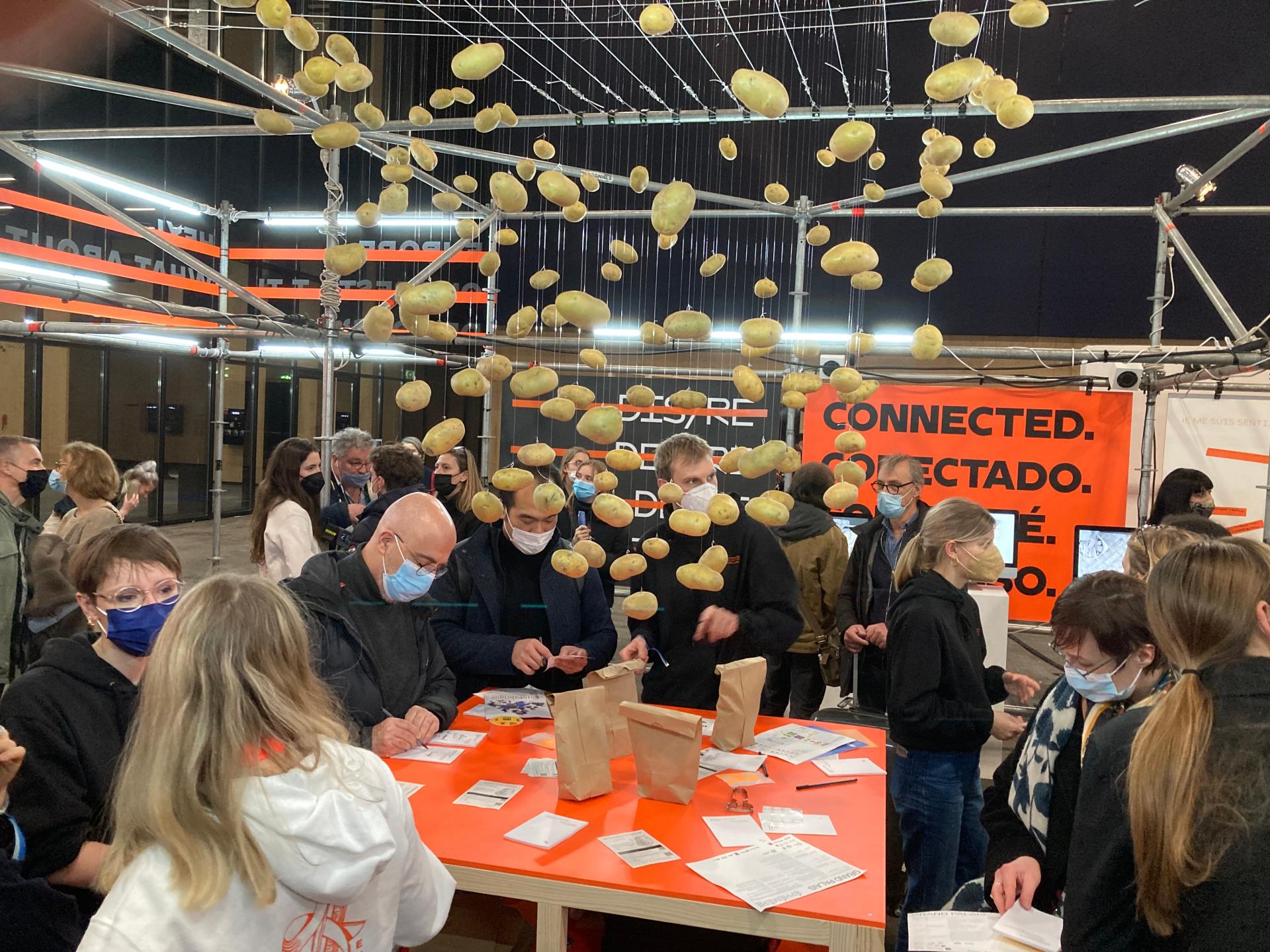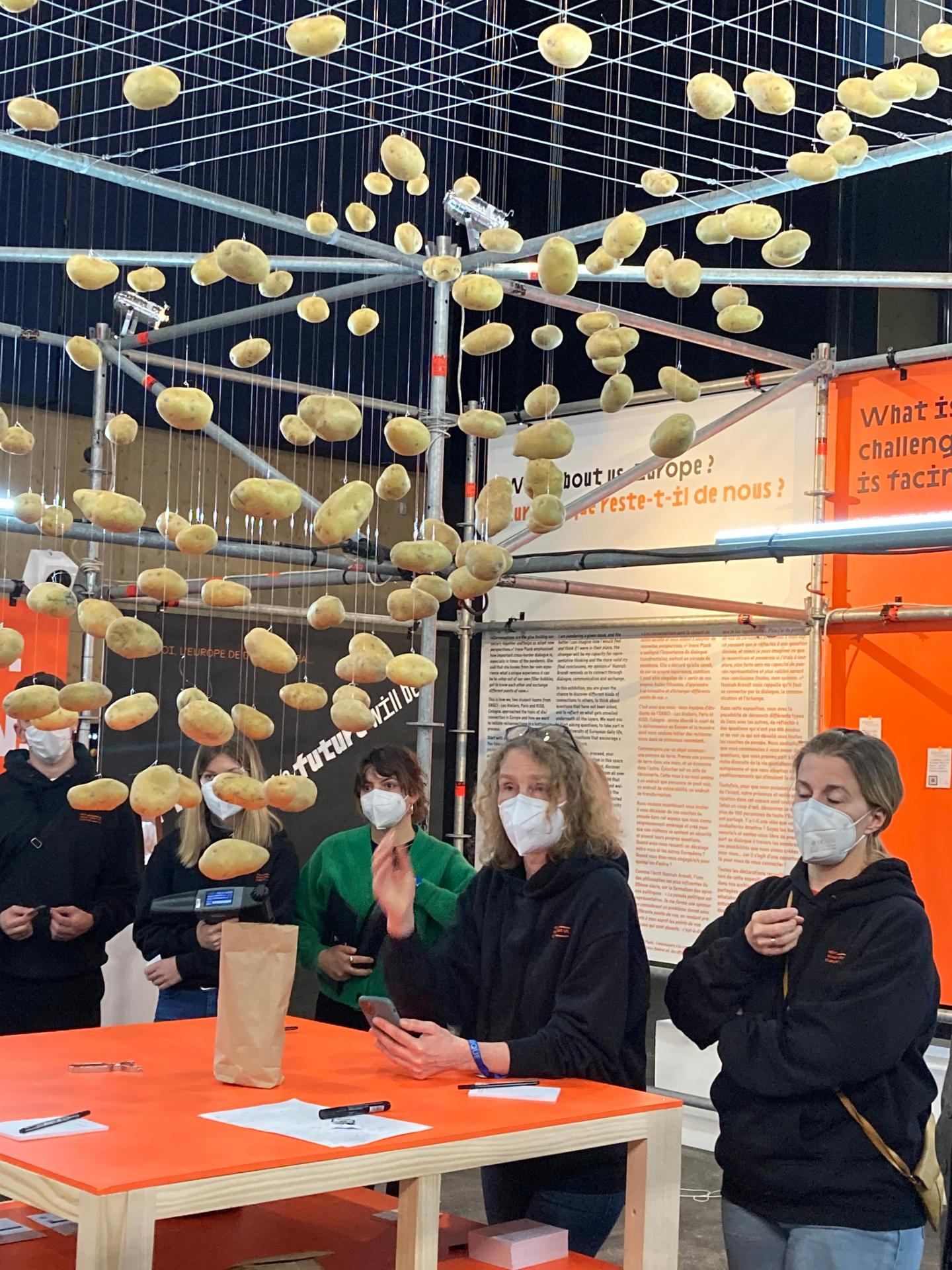The Potato Lab
Basic information
Project Title
Full project title
Category
Project Description
It is all about disconnecting and reconnecting to Europe, whilst peeling a potato, a common vegetable to all Europeans.
Organised by 2 design schools, 5 different topics have been developed by students from 10 countries, that are meaningful for their generation:
food
identity
borders
solidarity
challenges for Europe
These questions have been sent to a huge and diverse community across Europe.
The answers were given by video whilst peeling a potato, a relaxing moment of truth.
Geographical Scope
Project Region
Urban or rural issues
Physical or other transformations
EU Programme or fund
Which funds
Description of the project
Summary
The Potato Lab project is about disconnection and (re)connection to Europe in a playful way.
The 2 organising schools and students from almost 10 countries, have developed 25 questions emerging from 5 different topics that are meaningful about Europe for their generation: food, identity, borders, solidarity, critical challenges for Europe. These questions have been sent to a huge and diverse community across Europe. The answers were given by video and in the form of a specific action: whilst peeling potatoes, which is a very relaxing act allowing moments of truth. Over 700 videos have been done for The Potato Lab.
The aim of this project was to build a mobile exhibition of a live research lab on Europe.
A scenography at the Grand Palais Éphémère in Paris, was based on :
- an almost empty scaffolding structure framing an interactive laboratory that invited visitors to engage and reflect on these questions.
- panels hanging on the scaffolding, each panel with one of the 5 topics
- 6 screens broadcasting 100 videos of the people interviewed on their connection or disconnection to Europe
- a central "table" inviting visitors to unite and discuss, to write down their views on one of the 5 topics
- printed "post it" with one the 5 topics allowing visitors to write their views on the chosen topic
- stickers with a unique QR code allowing the post it to be stuck on the panel of the chosen topic. The unique QR code opens an application on the mobile phone of the participant with basic questions: consent, age, how much do you agree with the statement ? This QR code can be scanned by other visitors in agreement or not with the answer provided by the initial participant. A large poll is hence developed on questions and answers about topics on the connection or disconnection to Europe.
- With the videos, a large database on Europe is developed, leading to interactive design solutions and services.
- The Potato Lab scenography started in Paris, it is now in Cologne.
Key objectives for sustainability
Our project is about the long term goal of a sociological question: what is the feeling of belonging as European ? What is the feeling of not belonging as European. How can one reconnect to Europe ?
If sustainability is a long term goal, sustainable developments are steps to meet present needs without compromising the ability of future generations to meet their needs.
The Potato Lab rises questions such as:
- What is the main challenge that Europe is facing now ?
- When do you feel a gap between you and other Europeans ?
- What is your connection to food ?
- When did you stand up for somebody else ?
All questions related to the 5 topics raised by students: food, identity, borders, solidarity and critical challenges for Europe
The project is designed to be re-used / re-exhibited by other partners in the future, and through each “use” - each exhibition and on-site lab - new content will be created that will be made available both for the next hosts, but also for the database. The growing archive of clips from participants will be also distributed through instagram (5 videos will be published every week, giving very diverse insights by different people from all over Europe - inviting others to join and contribute). It is a living archive.
The potato is not thrown away but was given away to an NGO for homeless people at the end of the exhibition.
Key objectives for aesthetics and quality
The scenography is designed to be striking, appealing and modular.
Orange, black, white and greys are the colors of the scenography.
Graphically, the typographies selected are clear, striking and inviting. Participants can read easily, understand the thematic and interact as a live scenography.
The videos were made whilst peeling a potato in many different graphic ways.
This project allows simple access for everybody having a smartphone - and a potato. The potato became an artefact with different cultural values uniting all different stories, people and cultures. The visual language in the video creates a cohesion and consistency, the answers and reflections in different languages (and English subtitles) are easy to understand and to reflect on.
The potato is part of the exhibition. There is the act of peeling which is a way of peeling off the preconceptions on Europe, the old layers ... in view of reconnecting to Europe.
Key objectives for inclusion
Key objective is to reach out to as many different people with different social, political and cultural backgrounds as possible. New stories will emerge - imagine individual stories related to our questions connected to the lifecycle of a potato: The farmer, the Erntehelfer, the truck driver, the company owner, a customs person, a dispatcher, a supermarket vendor, a local market vendor, a kitchen helper in a restaurant, a kindergarden or a canteen, people eating the potato, people who clean up…
And of course, the question of belonging or not to Europe relates to a major question of inclusion.
Again, the potatoes used for the exhibition have been given to a homeless people NGO.
Results in relation to category
We applied for “Regaining a sense of Belonging”... to Europe. The 25 questions linked to the 5 topics: food, identity, borders, solidarity, critical challenges for Europe triggered over 150 participants to submit more than 700 videos to The Potato Lab.
- stickers with a unique QR code allowing the post it to be stuck on the panel of the chosen topic open an application on the mobile phone of the participant with basic questions about the participants: country, age, email and the simple question how dis/connected people feel to Europe.
In a second step, the application allowed participants to scan QR codes of other statements and connect themselves through a very simple question: how much do you agree or disagree with the statement ?
In the same way, participants could see what other participants thought about their statement. A large and ongoing poll is hence developed on questions and answers about topics on the connection or disconnection to Europe.
- With the videos, a large database on Europe is developed, leading to interactive design solutions and services.
Some European institutions such as Erasmus+ have contacted us to explore the data in the field of Citizenship Strategy.
The result achieved is a sociological interactive design manifesto and database.
How Citizens benefit
The Potato Lab is a participatory project about disconnection and (re)connection to Europe in a playful way. The aim is to create a feeling of reconnection to Europe.
The Potato Lab was created by 2 organising schools and students from almost 10 countries. It was part of a larger public exhibition named EUROFABRIQUE which took place on 10 February 2022 in the Grand Palais Ephémère in Paris. There was an immense interaction with over 2000 visitors as you can see it on two of the pictures. Great moments of truth emerged.
As said before, around 25 questions emerged from 5 different topics that are meaningful about Europe for the young generation: food, identity, borders, solidarity and critical Europe. A percentage of those questions have been sent to a huge and diverse community across Europe. The answers were given by video and in the form of a specific action: whilst peeling potatoes, a relaxing way of peeling preconceptions. Over 150 participants submitted more than 700 videos to The Potato Lab.
Visiting participants could write on stickers with a unique QR code allowing the post it to be stuck on the panel of the chosen topic. The unique QR code opens an application on the mobile phone of the participant with basic questions about the participants: country, age, email and the simple question how dis/connected people feel to Europe.
In a second step, the application allowed participants to scan QR codes of other statements and connect themselves through a very simple question: how much do you agree or disagree with the statement ?
In the same way, participants could see what other participants thought about their statement. A large and ongoing poll is hence developed on questions and answers about topics on the connection to Europe.
With the videos, a large database on Europe is developed, leading to interactive design solutions and services.
The aim of this project is to build an exhibition of a live research lab on Europe... and to make it travel.
Physical or other transformations
Innovative character
ENSCI is a NEB partner and this project in partnership with German school KISD / TH Cologne, is the opportunity to do a real NEB project.
The innovative character of the project is to build an interactive design project on the sense of belonging to Europe, on feeling connected to Europe.
Blending visual communications, service design, social design, scenography, this manifesto aims at uniting, creating interaction, building a sociological database in the form of a mobile living sculpture, all for Europe.
Learning transferred to other parties
The projects’ results will be transferred as often as possible to interested parties, such as to the European Culture Foundation in Amsterdam in May, and will be exhibited in a different format in Cologne in June, in Paris again in June and in as many locations as possible to pursue the living sculpture.
The French association ANDEA, partner of NEB: Association Nationale des Ecoles Supérieures d’Art, federating 44 art and design colleges under the supervision of the Ministry of Culture, is supporting the project very strongly and is reflecting on the way to give it as much visibility as possible.
We need the support of the New European Bauhaus in terms of visibility !
The award would also allow us to make it travel !

